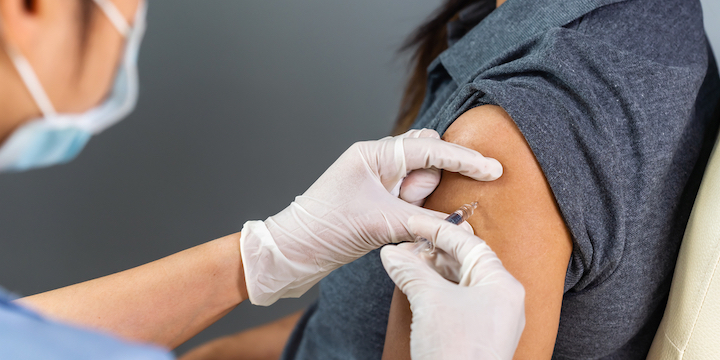The Covid vaccination campaign is due to start this Sunday, December 27. The Minister of Health, Olivier Véran, specified the modalities on December 22: only a few dozen people will receive the injection in two or three nursing homes.
“There will first be two or three establishments concerned. One not very far from Paris, another on the side of Bourgogne Franche-Comté and then possibly a third which is under discussion”, declared the minister, specifying that the first vaccines would be “delivered Saturday” in the territory.
Then, the vaccination will be extended “to other establishments on Monday 28 and then on Tuesday 29. We will gradually pick up like that, this is the initiation of the vaccination campaign,” added Mr. Véran. However, before vaccinating, there are still a few essential steps.
Read also: Covid: Pfizer-BioNTech’s vaccine authorized in Europe
At the regulatory level
The marketing authorization granted on December 21 by Brussels to the vaccine developed by Pfizer and BioNTech opens the doors to the 27 countries of the EU, but each state is master of its procedures.
In France, the High Authority for Health (HAS) is due to issue an opinion on this vaccine on December 24, called Comirnaty in reference to the technology used (messenger RNA, mRNA in English). It will decide whether it “fits into the vaccination strategy as recommended” or “with what reserves”.
The authority has already issued general recommendations on priority audiences and the organization of the campaign, but a specific opinion must be given for each vaccine, to take into account their characteristics (efficacy against transmission of the virus or only protection against disease, risk profile, storage conditions, etc.).
Sanitary safety
As with all vaccines, an additional control step is carried out to guarantee the quality and safety of the doses, referred to as “batch release”.
In parallel with the checks carried out by the manufacturer himself, an official control laboratory of the European Union will “receive samples to check their content and performance. And if all goes well, ‘release’ them”, explains in Le Parisien, Director General of the Medicines Agency (ANSM), Christelle Ratignier-Carbonneil.
These checks will be carried out by the laboratory of the German institute Paul-Ehrlich, which will issue a “certificate” valid “for all member countries of the EU,” he said in a statement.
Complex logistics
The delivery of the Pfizer / BioNTech vaccine is complicated by the storage conditions of this product, which must be stored at “ultra-low temperature” (approximately -70 ° C). The “logistics chain (…) is operational to start vaccination at the end of this week,” government spokesman Gabriel Attal assured on December 21.
“The vaccine will be supplied for Europe by the production sites of Pfizer in Belgium (Puurs) and BioNTech in Germany. (…) The doses will arrive by road for hexagonal France and by plane for the territories Overseas, “the American laboratory told AFP.
Maintain the cold chain
To facilitate transportation, the two manufacturers designed an insulated shipping container that “can maintain temperature for 10 days unopened” and “up to 30 days” by renewing the dry ice that fills it, Pfizer said.
“Each container contains a GPS thermal sensor that tracks the location and temperature of each vaccine shipment (…). Once thawed, the vaccine vial can be stored safely for up to 5 days in refrigeration conditions (at 2-8 ° C) “, adds the laboratory.
The doses will be transported to “a hundred sites with dedicated freezers, which will most of the time be hospital sites, at a rate of about one per department, in order to be able to vaccinate all the establishments (for the elderly) which are in link with these hospitals “, detailed Tuesday the Minister of Health Olivier Véran.
Safety of convoys
There will also be “six logistics platforms distributed homogeneously over the territory”, warehouses “authorized for the storage of health products” whose list is “not made public at this stage”, specifies the Ministry of Health. These platforms will supply the nursing homes which usually get their supplies from hospital pharmacies, because the latter will not be equipped with “super-freezers”.
Particular attention will be paid to the security of the convoys transporting the precious doses, the ministry also confirmed to AFP, citing “close” monitoring by the police. Interpol chief Jürgen Stock said he expected a “dramatic” increase in crime in this context with “thefts, burglaries of warehouses and attacks during the transport of vaccines”.
The establishments must have obtained the consent of the patients or their entourage and organized a pre-vaccination medical consultation.
 Cherry tomatoes contaminated with salmonella: 92 sick and 1 dead
Cherry tomatoes contaminated with salmonella: 92 sick and 1 dead  A better coaching method can make a person grow
A better coaching method can make a person grow  What is the method to prevent diabetes in children?
What is the method to prevent diabetes in children?  What are the effective factors in causing stomach ulcers?
What are the effective factors in causing stomach ulcers?  Why do embarrassing memories seem to appear at night?
Why do embarrassing memories seem to appear at night?  The amazing link between SARS-CoV-2 infection and newly started diabetes
The amazing link between SARS-CoV-2 infection and newly started diabetes  WHO says monkey pox is not a global emergency right now
WHO says monkey pox is not a global emergency right now  Single cell RNA sequencing uncovers new mechanisms of heart disease
Single cell RNA sequencing uncovers new mechanisms of heart disease  Hepatitis of unknown origin: 3 new deaths and 228 cases worldwide
Hepatitis of unknown origin: 3 new deaths and 228 cases worldwide 